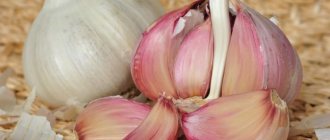Methods for storing whole lemons
If lemons have to be transported for a long time, they are collected unripe. Citrus fruits collected in the winter season have the longest shelf life, since they are picked when ripe.
This affects the taste. If the fruits have to be transported for a long time, they are collected unripe. During delivery, they acquire their characteristic color and smell.
Storage conditions without loss of taste:
- the storage location must be sufficiently ventilated;
- the temperature range ranges from 7... 15 °C;
- indoor air humidity should not fall below 85%;
- Each specimen is in a personal mesh, which protects the fruit from mechanical damage.
Thick-skinned citrus fruits last longer than thin-skinned ones.
To keep citrus fruits perfectly preserved, we recommend:
- do not keep them at home for more than 15 days: they lose their inherent taste;
- coat the peel with any vegetable oil and leave it in the cupboard - this will prevent it from withering;
- Remove fresh purchases from the plastic bag, ensuring air access and no condensation;
- pack each copy in baking parchment and then place it in a box with clean sand;
- create a vacuum in the storage container using a vacuum sealer.
To preserve fruits in the refrigerator, it is advised:
- use a shelf specially designed for these needs;
- do not leave them near foods that will absorb the smell;
- use parchment paper: it will help extend the life of citrus fruits;
- use a bowl with water (it will prevent loss of skin tone), change the liquid every two days.
Be sure to read:
How to choose and store dried fruits, wash, freeze, fight mold and insects
Following these recommendations will preserve the freshness of citrus fruits for six months.
It is recommended to store citrus fruits in a cool and dark place as follows:
- Place the fruits wrapped in parchment in a box, arranged with birch branches. Periodically, the citrus fruits are unwrapped, inspected and wrapped in fresh paper.
- Place the fruits coated with olive oil on racks so that they do not touch each other.
- Place the fruits in a copper pan and place the dishes on ice. Once every six months, wipe the lemons from moisture.
You can keep them in the kitchen without a refrigerator for 1 to 2 weeks. Nothing will happen to them in such a short time. Then they dry out.
But citrus fruits will remain fresh if they are kept at 6 to 8 degrees. But not lower, so that they do not freeze and the skins do not become soft.
Do not place fruit in the sun. They love the dark.
If the quantity of fruit is small, then send them in trays or bags to the refrigerator. They will be fresh for 4 to 5 weeks.
- Prepare the fruit. Select only healthy, tight ones. They have bright, glossy skin.
- Wash it. Let them dry.
- Place in container. Cover with lids and place in the refrigerator.
They also save each fruit separately in paper. This way moisture is saved.
- Do they need to sit longer, about 2 months? The vegetable oil you lubricate them with will help. The moisture will not evaporate and therefore the food will not spoil for a long time.
- Jars of water help the fruit stay intact for 2 - 3 weeks. Fill with cold water. Cover with lids and put in the refrigerator. Change the water once a day and rinse the lemons.
If you don’t want to store lemons in the refrigerator, natural beeswax will help. Coat all the fruits. When dry, store in a dry and cool place in plastic containers.
Wrap each lemon in wax paper. And keep it cool, but in such a way that the room has ventilation.
You can preserve fruits in sand or sawdust:
- First you need to wash them.
- Dry.
- Fill the boxes with a layer of any of the fillers, from 3 to 5 cm.
- Lay out the products in one layer, with a small distance from each other. Or wrap each one in paper.
- Sprinkle all layers with sand or sawdust.
- A basement or balcony is suitable for storage.
She may be:
- dried;
- frozen;
- preserved.
First, prepare the fruits, wash and dry.
- To freeze, fresh zest is grated with a grater and placed in the freezer. It can be used for a whole year.
- To dry, remove it from the lemons using a sharp knife.
It should lie spread out on a flat surface for 3 to 5 days to dry thoroughly. Then they make a powder out of it. Place in clean, dry jars with lids. For storage up to 2 years, dry and cool rooms are needed.
- The candied zest is prepared at a ratio of 1:2. Mix and place in small jars. Typically, it lasts in the refrigerator for about six months.
It is prepared from:
- lemon fruits - 1 kg;
- water - 500 ml;
- granulated sugar - 1.5 kg.
Wash the product, twist it, add the rest of the ingredients and cook according to the following scheme:
- 7 minutes, then leave to infuse for 10 hours;
- 10 min. and at 12 o'clock;
- 15 minutes. and put it in jars.
They need a dark, cool place. Then the product will last for 2 years.
Despite the fact that lemon at first glance can be stored for a long time, at room temperature its shelf life is significantly reduced. It quickly loses moisture, dries out, or vice versa - begins to deteriorate and mold.
Lemons can be stored without refrigeration at room temperature for no more than 14 days. To extend this period, you need to lubricate the peel with vegetable oil. This will give the citrus another week.
To prevent lemons from rotting, you need to keep them in as dry a place as possible, while avoiding sunlight.
We suggest you read How to remove wax from leather shoes. Removing the waxy coating
Under no circumstances should lemons be stored in a plastic bag without refrigeration.
One of the most popular options is to store lemons in the refrigerator.
To store lemons for as long as possible, before placing them in the refrigerator, it is recommended to wrap each fruit in paper to absorb excess moisture. You can also pre-lubricate the lemon peels with vegetable oil, and then place the fruits in plastic bags. To store lemons for a long time, you will need to maintain the temperature in the refrigerator no higher than 8 degrees. If the above conditions are met, lemons will remain fresh for about two months.
Citrus fruits, if they are kept at a temperature of 20°C - 24°C, will remain fresh for no more than 7 - 14 days. Without a bag, they will most likely dry out, and if they are placed in plastic bags, they will rot.
To avoid rotting of lemons, they are kept in rooms with moderate humidity, protected from sunlight. In the bag in which citrus fruits are stored, you need to make several holes for air circulation. But it is best to choose a container with a loose-fitting lid for warm storage. And provide citrus trees with good air circulation.
The method of wrapping each fruit in a paper napkin will help increase the shelf life of lemons in the refrigerator. The paper will absorb excess moisture, preventing the development of rotting. You can use paper towels or napkins, or regular parchment paper for these purposes.
Citrus fruits can remain fresh for more than two months if their peels are coated with sunflower oil. Such fruits can be kept in the freshness zone of the refrigerator. It is better to use zip bags or plastic containers with lids as containers.
Like any product, lemons require certain conditions. What exactly affects their shelf life?
- Temperature. Lemons stand well at 5-8° above 0. At lower temperatures they quickly become soft. And at higher levels, they dry out and darken.
- Air humidity. The fruits remain juicy for a long time at a humidity of 75-85%.
- Lighting. In the light, the product loses vitamin C and becomes covered with dark spots, so lemons are stored only in a dark place.
If the lemon was in the freezer, use it until it is completely thawed. Thawed citrus has a soft structure, is difficult to cut and flows.
In addition, the length of the shelf life largely determines the initial quality of the product. Which lemon will stay fresh for a long time? Bright yellow, shiny, elastic, without dark spots on the skin. If the fruit is dark or, conversely, greenish in color, with islands of mold on the surface, it will not last long.
Uncut fruits can remain fresh from one week to six months. The period depends on the conditions in which they are placed.
The best place to store uncut lemons at home is in the refrigerator. In order for fruits to remain fresh for 1-1.5 months, you need to prepare them for placing in the device chamber as follows:
- Rinse the bright yellow elastic fruits thoroughly with a brush under running warm water.
- Place the lemons on a cloth and wait until they dry completely.
- Wrap each fruit in wax paper or regular clean notebook sheets, place in a container with a lid and place in the vegetable compartment or on the middle shelf, but not too close to the back wall.
Lemons do not spoil for a long time not only in the refrigerator, but also in the cellar, as well as on the balcony (especially in cool weather). The fruits are stored in the following order:
- Sawdust (sand) is poured into a layer of 4-5 cm at the bottom of a wooden box or cardboard box.
- The brushed and dried lemons are wrapped individually in paper and placed on top.
- A layer of sawdust (sand) 4-5 cm thick is poured onto the fruit.
- The container is covered with newspapers and put in a cool room. In a good cellar, lemons in this form do not spoil for 3 to 6 months.
The worst place for citrus fruits is at room temperature. If you wrap them in paper and put them in a dark pantry or closet, they will not spoil within 2 weeks. The plastic bag will most likely become moldy within a week. If left outdoors, such as on a table, without packaging, it will dry in about the same amount of time.
You can extend the “life” of lemons without refrigeration by greasing them with melted natural wax. When the layer dries, the fruits are placed in a cardboard box and stored in a dark pantry for up to 2 months.
For those who are fond of baking, it is cost-effective to preserve not only the fruits with pulp, but also the zest for a long time. There are 3 ways to do this:
- Drying. The lemon zest is cut into a spiral with a knife and placed in one layer on paper. After 3-5 days, the dried product is placed in dry glass jars with plastic lids. Properly prepared zest does not spoil for 6-12 months. The still dried peel can be ground into powder.
- Freezing. Remove the peel from the washed dry lemon using a grater. It is then wrapped in cellophane and placed in the freezer.
- Canning. The peel removed with a grater is mixed with granulated sugar in a ratio of 1:2. The mixture is placed in a glass jar and sealed. You can store the zest in sugar for about six months, preferably on the middle shelf of the refrigerator.
How can you extend the shelf life?
The key to long-term storage of the product is the choice of healthy fruits. To preserve citrus fruits for a long time in a fresh state, they are subjected to special processing.
A popular way to keep lemons fresh longer is to apply wax to the peel.
Cover the entire surface with wax melted in a water bath. Let it harden. Then wrap each fruit in parchment paper, put it in a container and put it in a cool, dark place. In this form, lemons will remain fresh for up to one year.
Another option for processing citrus fruits is to dip them in vegetable oil. Such fruits will remain fresh for six months without refrigeration.
Fine:
- ripe lemons are bright yellow;
- each wrapped in wax paper;
- canned fruits are placed on the pantry shelf;
- candied and salted lemons stand on the refrigerator door.
Badly:
- a glossy shine is noticeable on the peel of the fruit - a sign of treatment with a chemical preservative;
- lemons lie near the heating radiator;
- fruit slices are placed in a plastic container without sugar;
- The product is stored in a box on the balcony without filler or protection from light.
Citrus fruits contain a lot of essential oils, and their vitamin C content can compete with sauerkraut. Consuming a small amount daily strengthens the immune system in winter. Lemon juice has beneficial effects on the skin if used regularly as a toner. It’s convenient to always have lemons on hand in case of an emergency stain removal from your favorite blouse.
Home conditions allow you to store even large quantities of fresh citrus fruits for a long time. The main thing is to properly process them before storage and not violate temperature conditions.
Shelf life of lemon water
Drinking this drink daily brings great benefits to the body. Citrus contains vitamins and minerals that have a positive effect on the digestive, cardiovascular, immune and nervous systems. Water with lemon helps to lose excess weight, normalizes metabolism, improves psycho-emotional state, cleanses the liver, and slows down the aging process.
For a single dose, it is enough to squeeze the juice from half the fruit into a glass of clean warm water (temperature within 25-35 degrees). It is not recommended to drink more than 0.2 ml of the drink at a time, especially for people with gastrointestinal dysfunction. Usually it is drunk in the morning on an empty stomach.
Water with lemon loses its beneficial properties during storage, so it is prepared immediately before use.
Attention! If the recipe contains ingredients such as ginger, mint, cucumber, the shelf life of the drink in the refrigerator increases to 12-24 hours.
How long does lemon juice last?
Preparing the drink for the winter is carried out in the following ways:
- Sterilize washed jars and lids, pour squeezed lemon juice into them to the brim and roll them up. Transfer the containers to the cold. When pouring juice, you can add a little almond or olive oil. If it will be used for cooking, then sunflower will do;
- Lemon juice is poured into food containers, bags or ice trays and left in the freezer. Used for cocktails.
The steps to obtain the drink must be performed quickly, because the components of lemon are very volatile. Also, when squeezing juice, it is recommended to use special devices that prevent contact of citrus with metal, as it contributes to the destruction of beneficial substances.
How to store a whole lemon
Room conditions
Lemons feel great at home without a refrigerator, subject to the following rules:
- room temperature – from 18ºC to 24ºC;
- air humidity – 60%;
- avoid exposure to direct sunlight;
- do not store fruits in a tightly closed plastic bag; paper bags are perfect for this;
- Shelf life: two weeks.
This method is suitable for those who purchased the product for short-term storage.
Fridge
The best option for storing lemons is the refrigerator. To keep the product fresh longer, follow these recommendations:
- temperature – from 6ºC to 8ºC (compartment for fruits and vegetables);
- observe the product proximity, since citrus fruits have a specific, pronounced odor that spreads to other products;
- do not store fruits in a tightly closed plastic bag, preferably in paper bags;
- The shelf life of the product is from 4 to 5 weeks.
We invite you to familiarize yourself with Alpine freshness glass cleaner, with ammonia, 500 ml (4313223) — Buy at a price of 41.00 rub.
Cellar or balcony
As an alternative to a refrigerator, a cellar or glassed-in balcony is perfect. This option is also convenient if you have a large amount of fruit.
To store lemons in such conditions, adhere to the following standards:
- temperature – about 5ºC;
- air humidity – 60%;
- avoid exposure to direct sunlight;
- Place the lemons in a cardboard box or wooden box, having previously wrapped each fruit in paper;
- Shelf life: two weeks.
To extend shelf life, sand or sawdust are also used, which slow down the withering process of the fruit. Cleaned and dried sand (in the stove, oven or in the sun) is poured onto the bottom of the box in a layer of 3-4 cm. Lemons, previously wrapped in parchment paper, are laid on top. After all the fruits are placed in the container, they are again covered with the same layer of sand. Shelf life increases to 4 weeks.
Freezer
How to preserve lemons for a long time at home? Deep freezing is suitable for this. The advantage of this option is that, thanks to the low temperature, it is possible not only to extend the shelf life of citrus, but also to preserve most of its beneficial properties.
To freeze properly, follow these steps:
- Pack the fruits in airtight packaging (ziploc bag).
- Place lemons in the freezer at -18ºC.
- Do not refreeze fruit.
- Shelf life: 4 months.
Salt
This may seem strange, but many people specifically pickle lemons, getting used to their specific taste. The original preparation can be used to prepare sauces, served as an independent dish or as a side dish.
The lemon is cut into four parts lengthwise, not all the way, but so that it turns out to be a “flower”. Then coarse sea salt is poured into the center of the fruit and the slices are squeezed tightly.
Fill the jar with lemons prepared in this way and wait 4 days. During this time, the citrus fruits will give juice and become much softer.
Then the jar is opened and the contents are sealed, and freshly squeezed lemon juice is poured on top. It needs to cover the fruit completely.
The pickles are kept in a cold place for about a month. Apply as follows: the peel is freed from the pulp and washed under running water. The product is ready to use.
How to store cut lemon
- To increase the shelf life of cut lemons, lemongrass is used. It will help the citrus stay fresh for up to 1 week. Typically, lemon slices can be kept in the refrigerator for no more than 2 - 3 days.
- A good option is to sprinkle a plate with granulated sugar or vinegar, and then place parts of the fruit on it so that their cuts are at the bottom.
- Some housewives coat the cut portions of lemons with egg white and store them cut side down on a plate.
- The fruits are also lowered into the water with the cut side up, so that drops of water do not fall on the cut areas.
The cut fruit is stored in the refrigerator, in a special lemon jar with a lid, placing it on the cut. In this container it will be edible for about a week. If this time is not enough, cover the lemon cut with foil or pour sugar into the bottom of the lemon bowl. These measures will double the shelf life of the product.
If there is no lemongrass in the house, the citrus is placed on a saucer and covered with a tea cup or a small glass jar on top.
Sliced lemons can be stored in the main compartment of the refrigerator for up to six months, sprinkled with sugar. You can do this in one of the following ways:
- The bottom of a clean glass jar is coated with sugar. A layer of washed fruits, cut into circles or half rings, is placed on top. Then sugar is added back to the jar. The procedure is repeated until the container is full. When the juice is released from the fruit and the sugar has melted, the jar is sealed and placed in the refrigerator. Sugar and fruit take the same amount.
- The washed and dried fruits are passed through a meat grinder with a large grid and mixed with granulated sugar. After 10-15 minutes, the healthy treat is transferred to a glass jar and placed in the refrigerator. The ratio of sand and lemons in this case is 2 to 1. This option is usually used as a preparation for the winter.
If lemons are needed for preparing savory dishes, sprinkle them not with sugar, but with salt, adding pepper and bay leaves to the jar if desired.
You can preserve lemons for six months at home in the freezer. The washed and thinly sliced fruits are placed on a baking sheet in one layer and frozen for about 5 hours. When the slices become hard, they are transferred to a plastic bag and sent back to the freezer.
How to store cut lemons? To do this you will need a refrigerator, or rather a freezer.
Fridge
The tips below will help you preserve lemons in the refrigerator for a longer period:
- Lemongrass. Place the cut fruit in a special storage container, which is then placed in the refrigerator at a temperature of 2ºC to 4ºC.
- Place the cut lemon in a container, cut side down, covering the top with a lid or cling film. Store in the refrigerator at a temperature between 2ºC and 4ºC. This will reduce the loss of moisture from the fruit.
- Lemons keep well in the refrigerator, cut side up, if they are placed halfway in a container of water that does not come into contact with the cut pulp.
- Use salt or sugar (depending on the further purpose of use) as a preservative. Place the cut lemon, flesh side down, on a previously sprinkled surface.
Remember that, regardless of the method chosen, it is recommended to store cut lemons for no more than a week.
Freezer
In addition, lemon slices are also used for freezing:
- Cut the lemon into wedges.
- Place them on the bottom of an open container (container) covered with a paper towel. Make sure that the slices do not touch each other, otherwise this will lead to them freezing to each other.
- After a few hours, remove the finished slices and place them in an airtight package (zip bag) for further storage in the freezer at -18ºC.
- Do not refreeze fruit.
- Shelf life: 4 months.
We suggest you familiarize yourself with How to clean and bleach a silicone phone case from yellowing or darkening
It is worth noting that in any case it will not be possible to store cut lemons for a long time, since they will dry out quite quickly. To slow down this process, the simplest and most correct solution would be to place the cut lemon on a plate, cut side down, and cover it with a glass on top.
Now in stores you can buy a special lemon maker, in which the cut lemon will remain fresh in the refrigerator for about 7 days.
There are a few more tricks on how to store cut lemons:
- place the lemon cut side down on a saucer coated with vinegar or sprinkled with sugar;
- brush the cut area with egg white;
- Place the lemon, cut side up, in clean water so that it does not get on the cut.
Methods for long-term storage of lemons
There are simple ways to preserve cut lemons from one and a half weeks to six months without losing taste and beneficial properties:
- The slices are sprinkled with granulated sugar and placed in a washed container. The released juice can be carefully drained and used at your discretion.
- A fresh cut is coated with the white of a raw egg - this forms a protective film on the surface.
- Sugar or salt (apple cider vinegar) is poured onto a saucer and pieces of fruit are dropped into it.
- They use special cases for citrus fruits, which prevent it from drying out (they can be bought in the tableware department).
With sugar
- Prepare the lemons: wash, dry, cut.
- Pour sugar into jars, place lemons and make several layers.
- Important! For 1 kg of fruit - 1 kg of granulated sugar.
- Let them sit and let out the juice.
- Place in the refrigerator, covered.
Such citrus fruits can be stored for six months.
Instead of cutting into rings, you can instead grind the fruit through a meat grinder. Then the amount of preservative must be increased to 2 kg.
Salt for storage
For preparations for second courses:
- cut lemons into pieces;
- Place tightly in jars, sprinkling with salt;
- store in the refrigerator.
Some housewives also add bay leaf and pepper to such preparations. But this is not for everyone.
Freezing
If you like frozen foods, then wash, dry and thinly slice them. First, lay everything out in one layer and place it in the freezer for 4 to 5 hours. Then, take it out and put it into prepared bags. They don't need to be defrosted for a whole year.
- Whole frozen lemons are good for shavings. It can also be stored in the freezer in any container.
- Lemon juice can be frozen into cubes. And then transfer them from the molds into bags and use them gradually for a whole year.
- If you have a cut lemon left, place it cut side down on a plate, after sprinkling salt or sugar on the bottom. Cover the top. Can be used: cup, jar, glass. The lemon will stay fresh for 3 to 4 weeks.
Use of lemon in folk medicine
Lemon is an amazing product that has a wide range of beneficial qualities for the body. It is actively used by traditional healers to prepare miraculous potions. The most popular use of lemon is to prepare compote or tea based on this citrus.
How else can you use healthy citrus?
Treatment of rheumatism
An unpleasant disease can be successfully treated with lemon. Of course, the product should not act as the main therapeutic agent, especially if the disease is acute or advanced, but it is ideal as an auxiliary drug.
- Every day after lunch, drink 1 tbsp. lemon juice.
- Grate the lemon zest and mix it with an equal amount of honey. Eat the resulting mixture on an empty stomach (1 teaspoon). This will help relieve the unpleasant symptoms of rheumatism.
- Prepare a mixture of 4 lemons and 3 medium-sized heads of garlic. Pour the resulting mixture with a liter of boiling water and leave to steep for a day. Afterwards, take 50 ml daily. three times a day.
Treatment of flu and colds
Thanks to vitamin C, lemon has a powerful anti-inflammatory effect. It is useful to include this citrus in your diet every day during an epidemic of colds. If the disease has already attacked the body, then lemon will help speed up recovery and alleviate the patient’s condition.
- The following mixture will help cure a cough quickly: mix the juice of 1 lemon with 2 tbsp. spoons of olive oil. Use the resulting mixture to wipe your sore throat or drink in small sips throughout the day.
- Boil 1 lemon (no more than 10 minutes), then squeeze all the juice out of the fruit. Strain the resulting liquid and drink 1/2 cup three times a day. The recipe helps relieve fever and has a powerful expectorant effect.
- Lemon oil will help fight viruses, colds and infections. Preparation: put the lemon in boiling water for 1 minute, then pass it together with the zest through a meat grinder (you can grind it with a blender). Add 2 tbsp to the pulp. spoons of honey and 100 gr. natural butter. Mix everything thoroughly and place in a glass jar. Eat lemon butter for breakfast every day - spread it on a piece of bread like regular butter.
Prevention of hypertension
Lemon can act as an analogue of medications in the treatment of hypertension
But it is important to remember that you can replace medications with a natural product only in consultation with your doctor.
- During the day, eat 1/2 fresh lemon (add citrus to tea or other dishes).
- Grate the lemon peel and mix with 1 teaspoon of honey. Take the product three times a day, 1 teaspoon.
- Grind 3 lemons and 5 heads of garlic. Transfer the mixture into a glass jar, pour 1 liter. water, leave to infuse for 3 days. Afterwards, take 1/2 cup of the decoction in the morning on an empty stomach.
How to store frozen
- Freezing citrus fruits is a good option to preserve the crop for a long time if it is grown by yourself. The preparation can even be made from store-bought citrus fruits so that they are on hand at any moment.
- The fruits are washed, dried and cut into thin slices. They are then laid out on a tray and frozen. When the slices are completely frozen (4 – 6 hours), the slices are transferred to bags or food-grade plastic containers, and again sent into the cold.
If you freeze the fruits whole and grate them before they thaw, you will get lemon shavings. It is laid out in small portions in bags and sent to the freezer.
Storing Lemon Peel
She may be:
- dried;
- frozen;
- preserved.
First, prepare the fruits, wash and dry.
- To freeze, fresh zest is grated with a grater and placed in the freezer. It can be used for a whole year.
- To dry, remove it from the lemons using a sharp knife.
It should lie spread out on a flat surface for 3 to 5 days to dry thoroughly. Then they make a powder out of it. Place in clean, dry jars with lids. For storage up to 2 years, dry and cool rooms are needed.
- The candied zest is prepared at a ratio of 1:2. Mix and place in small jars. Typically, it lasts in the refrigerator for about six months.
Drying lemon
To extend the shelf life of already cut fruit, it is dried. The lemon should be cut into thin slices and then placed on towels. You need to dry it constantly, turning it over, for 3 - 5 days, until the moisture has completely evaporated.
You can quickly dry the lemon using an oven or drying cabinet. The slices are placed on a wire rack and kept at 50°C – 60°C for about 6 hours.
Storing dried lemon is allowed even in a warm place, in glass containers or paper bags. It is important that the place where it is located is dark and dry. You can store lemon in this form for 6-9 months.
As it became clear, storing lemon at home is possible even in large quantities, using various technologies. And if you want to know how to store another citrus at home - orange, be sure to read this article.
From the options presented here for storing lemon, you should choose the most suitable one. And by using the knowledge gained from this article, you can have healthy, aromatic citrus in your home throughout the year. And use it for making baked goods, desserts and various drinks.
Lemons have a pleasant taste, but it is impossible to eat even one fruit in a day. What can we say about one or even several kilograms of useful product. How to properly store lemons so that they do not spoil for a long time?
How long can lemon curd last?
The citrus cream with a thick texture was created in the likeness of custard. Its prevalence in cooking is due to its availability and ease of preparation. Unlike its prototype, lemon curd does not contain flour and milk, its taste is less cloying.
The peel is removed, the juice is squeezed out, and the pulp is combined with sugar, butter, and eggs. The container is placed in a steam bath for 15 minutes, which helps to avoid protein coagulation and the appearance of lumps in the mass. After cooling, the cream is transferred to a glass container, covered with cling film and sent to the refrigerator.
Heavily thickened curd is diluted with whipped cream. Store dessert in the refrigerator for up to 2 weeks. The temperature should not fall below 6 degrees.
To summarize, it can be noted that lemons in the refrigerator remain fresh for no longer than 2-3 months. For longer storage, it is recommended to make preparations for the winter. You can freeze citrus, but it loses its taste and some of its nutrients. The choice of method for extending shelf life depends on the further use of the fruit.
Video: frozen lemons
Video: why do I freeze lemon juice into cubes?
I recommend to read:
- How to properly freeze fresh sorrel for the winter: recipes for preparing it at home - The most affordable and easiest way to prepare sorrel for the winter is freezing in the refrigerator. This allows you to preserve the taste and beneficial properties of greens for further…
- Rules for long-term storage of cranberries in the refrigerator and without it - Cranberries are a storehouse of useful substances that need to be preserved throughout the winter. It is important that cranberries do not lose their beneficial properties when frozen and long-term storage at home...
- Is it possible to keep garlic in the refrigerator: 10 ways to store vegetables - Garlic is a crop characterized by a high degree of lightness. However, for its long-term storage it is necessary to create certain conditions: suitable temperature and humidity,…
- How to store dried mushrooms at home - Drying is one of the most popular options for stocking up on dried mushrooms for future use. Rules and methods for storing homemade preparations, terms and options for use in cooking...
- Preparing and storing gladioli in the refrigerator - Gladiolus is a rather whimsical plant that will delight its owner with flowering only if it is wintered correctly. It can be achieved by immersing the tubers after...
- How to properly store red caviar in the refrigerator and freezer - Red caviar can decorate any holiday table. Experienced housewives prefer to purchase it in advance, before the upcoming celebration and price increases. So that after long-term storage...
- How to keep strawberries and strawberries fresh in the refrigerator - You can enjoy strawberries not only in the summer, but also in the cold season. The main thing is to properly preserve the ripe berries. One of the best ways is to freeze strawberries for…
Preparing candied fruits
- Make thin slices of lemons up to 5 mm thick.
- Place in a bowl, add water and set aside for 24 hours to remove bitterness. Remove the lemons from the water and arrange them in layers, sprinkling them with granulated sugar.
- After two hours, cook for 5 or 7 minutes.
- Remove from the stove. In the morning, do this procedure once or twice more. Place the lemons in a sieve to drain the syrup.
- Place on baking sheets and dry for 1 to 2 days.
- Turn over from time to time. For sprinkling, use powdered sugar.
Wrap the candied fruits in parchment and put them in the refrigerator.
We have selected the most effective ways to preserve lemon fruits. You can now begin.
How to prepare for the winter, step-by-step instructions
Freezing in the refrigerator
- Wash the lemons and dry them.
- Cut into circles without cutting off the peel.
- On a flat plate, place the slices at a distance from each other.
- Place the plate in the freezer overnight.
- Transfer the wedges to freezer bags and seal tightly.
- Put it back in the freezer.
Frozen lemons are perfect for eating, as well as for treating certain diseases. The beneficial properties of the fruit will not disappear after storage at sub-zero temperatures, so this type of preparation for the winter will be a real salvation during the cold season, relieve sore throats and strengthen the immune system.
Add lemons to tea or water, and the zest will be a wonderful addition to any dishes, giving them a bright taste and aroma. And lemon slices or circles will decorate salads and cocktails on your holiday table.
What to do if there is no refrigerator?
Drying
- Thinly slice the lemons into slices.
- Place on baking sheets in a warm, well-ventilated room or use the oven.
- Turn the mugs over occasionally to dry evenly and maintain a beautiful appearance.
Add dried lemons to your drink to make it more fragrant, tasty, and most importantly healthy. Dried lemon zest can be used in cooking, adding it to cakes and baked goods to add aroma and distinct flavor, and as a decoration.
Conservation
- Place the lemons in cold water for half an hour.
- Scrub the peel thoroughly with a brush.
- Pour boiling water over the lemons, wipe with paper towels and set aside to dry.
- Trim the tails on both sides of each fruit.
- Cut into circles or slices about 0.3-0.5 cm thick.
- Remove the seeds.
- Place a thin layer of sugar at the bottom of dry, sterile jars.
- Place lemons on top in 2-3 layers.
- Fill the container to the top and close it tightly with the plastic lid.
- Place in the refrigerator for a couple of days.
- Turn the jars regularly to dissolve the sugar.
- As soon as the volume of the contents decreases, add lemons again, sprinkling them with sugar (in the end, its layer should be the last).
- Roll up the jars. You can pre-sterilize them (20 minutes is enough for containers with a volume of 0.5 liters).
Drinking hot tea with lemon on cold winter evenings has already become a tradition for many, so feel free to add canned lemon slices to drinks.
Candied fruit
- Remove the lemon zest.
- Soak it in water for 3 days.
- Then scald the peels and boil them in sugar syrup.
- Dry the candied fruits in the oven.
Candied citrus fruits are among the healthiest. This is an excellent source of vitamins and fiber, which has a beneficial effect on the digestion process and helps cleanse toxins. It is also recommended to replace any sweets with candied fruits.
Turkish delight
- In a suitable container you need to boil the lemon juice, sugar syrup and chopped nuts.
- Then pour the mixture onto a wide, flat dish and let cool.
- Cut into cubes after cooling and sprinkle with powdered sugar.
Of course, some of the beneficial properties of such Turkish delight are destroyed during the heat treatment of the juice, but the nuts make this dish healthy. By eating natural Turkish delight, you don’t have to worry about harming your body.
Cold storage
The method of wrapping each fruit in a paper napkin will help increase the shelf life of lemons in the refrigerator. The paper will absorb excess moisture, preventing the development of rotting. You can use paper towels or napkins, or regular parchment paper for these purposes.
Citrus fruits can remain fresh for more than two months if their peels are coated with sunflower oil. Such fruits can be kept in the freshness zone of the refrigerator. It is better to use zip bags or plastic containers with lids as containers.
Lemons should be stored in the refrigerator at a temperature of about +8°C.
Storage at room temperature
Citrus fruits, if they are kept at a temperature of +20°C - +24°C, will remain fresh for no more than 7 - 14 days. Without a bag, they will most likely dry out, and if they are placed in plastic bags, they will rot.
To avoid rotting of lemons, they are kept in rooms with moderate humidity, protected from sunlight. In the bag in which citrus fruits are stored, you need to make several holes for air circulation. But it is best to choose a container with a loose-fitting lid for warm storage. And provide citrus trees with good air circulation.











